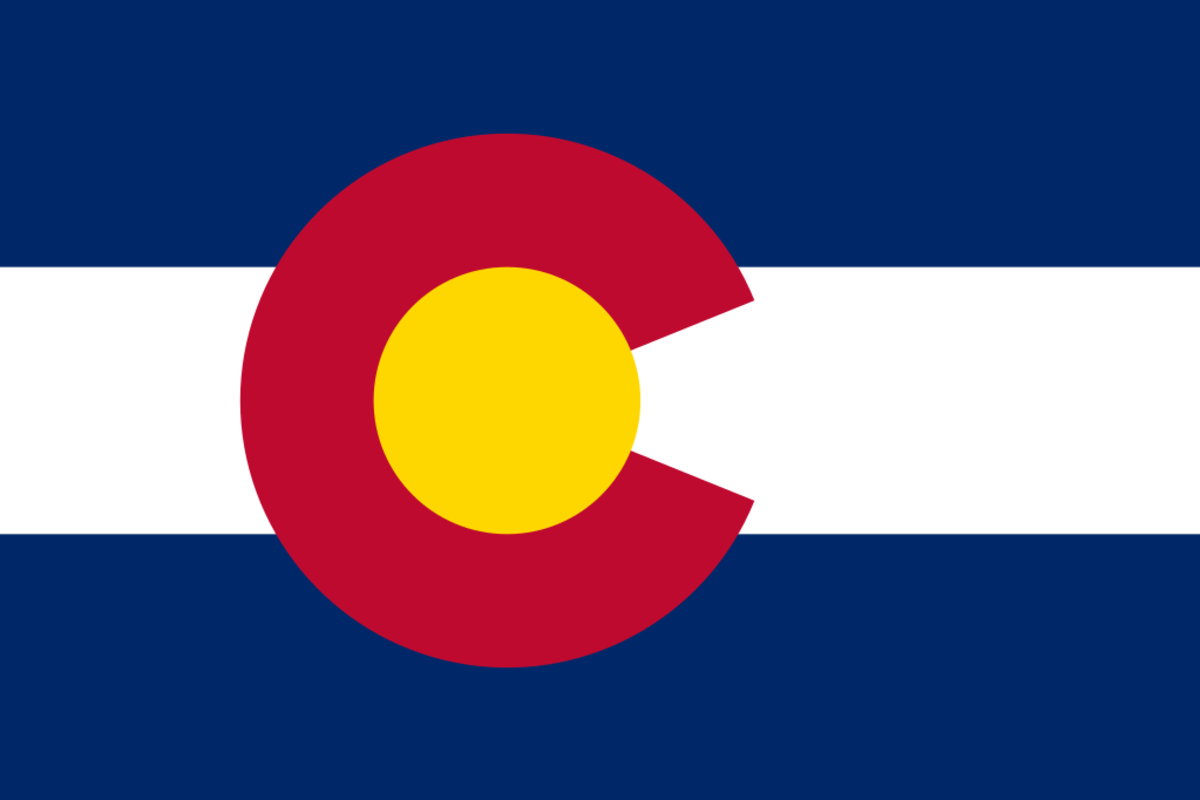Colorado Workers’ Comp Laws

On average, over 21,000 workplace injuries occur in Colorado every year. These accidents, however, result in only an estimated 30,000 workers’ compensation claims. While some workers may choose not to file a claim for a variety of reasons, no worker should be left without coverage due to ignorance of their rights. It is important to note that although workers’ compensation insurance covers around 87% of employees in Colorado, there is still a significant 13% who may not have coverage in the unfortunate event of an occupational injury.
If you are employed in mining, construction, manufacturing, or transportation, you are more likely to be injured at some point during your employment than workers in other industries. These injuries can cause severe complications, temporary or permanent disability, and financial distress. The following Colorado workers’ compensation laws will ensure you are able to receive the compensation you deserve for losses caused by a workplace accident.
Colorado Workers’ Compensation Act
In 1915, the state legislature passed the Colorado Workers’ Compensation Act. This Act set the legal precedent that employers are required to carry workers’ compensation insurance to protect the health and safety of their workers. Through the Act, Colorado establishes that financial responsibility for workplace accidents lies with the employer rather than the employee.
Reporting Accident to Employer
Time is of the essence in workers’ compensation claims. The longer you wait to have a medical professional examine your injuries and make a report to your employer, the more likely they are to be able to deny you workers’ compensation benefits. Colorado law requires injured workers to report their accident to their employer within four days to prevent potential miscommunication or fraud.
Reporting Accident to Department of Workers’ Compensation
After you have alerted your employer of the workplace accident, the incident will need to be reported to the state. Reporting a workplace accident to the Colorado Department of Workers’ Compensation is the first step in the workers’ compensation claim process. According to state law, workplace accidents must be reported to the Department of Workers’ Compensation within ten working days. Both the employer and employee can report the accident. However, if the accident leaves you incapable of filing a report, the Department may extend this deadline.
Potential Offsets
Before applying for workers’ compensation, it is important to be aware of potential offsets that may reduce or eliminate your benefits. For example, if your accident occurred because you violated a workplace safety rule, your compensation for non-medical damages could be reduced by half. Other things that could impact your overall compensation would be working while under the influence, misleading your employer, or making fraudulent statements about the accident. If you are unsure if there are any mitigating circumstances that could affect your compensation, consult with a qualified workers’ compensation attorney.
Wrongful Termination
Before workers’ compensation acts were passed throughout the country, many employers attempted to get rid of injured employees they viewed as financial liabilities. Luckily, Colorado’s workers’ compensation laws establish that employers do not have the right to fire injured employees after they have filed a workers’ compensation claim. If your employer terminates your employment after you have filed for workers’ compensation, you have the right to sue them for wrongful termination.
Right to Sue Negligent Employers
Unlike some other states, workers in Colorado have the right to sue negligent employers if their egregious negligence results in injury. For example, if your employer does not provide adequate safety gear and you are injured, you have the right to sue them for compensation outside of typical workers’ compensation. A qualified accident attorney can help establish your employer’s negligence and ensure your workers’ compensation lawsuit is successful.
“No Fault” System
All accidents are covered by workers' compensation insurance, regardless of whether the accident is the employer's or employee's fault. Your compensation will be reduced if you have some responsibility for causing the workplace accident, as opposed to being solely at fault. Any medical expenses incurred due to a workplace accident are covered by your employer's workers' compensation insurance, regardless of fault.
Injuries Covered By Workers’ Compensation
Every workplace injury is unique. As a result, some workers may be unsure if workers’ compensation insurance will cover their treatment. Colorado law does not exclude any injuries from coverage. As long as the injury was sustained on the job or while performing duties related to your employment, your employer’s workers’ compensation policy will cover your medical costs. Typical workplace injuries include:
Broken or fractured bones
First, second, or third-degree burns
Amputation
Exposure to toxic chemicals
Torn rotator cuffs
Concussions
Spinal trauma
Asbestos poisoning
Carbon monoxide poisoning
PTSD
Cancer
This is a non-comprehensive list of common occupational injuries. If your accident resulted in injuries different from those listed above, you still have the right to full medical coverage from your employer.
How Pain and Suffering is Calculated in Colorado
While workers’ compensation alleviates the financial strain after a workplace injury, injured workers may not be appropriately compensated for their pain and suffering. In Colorado, pain and suffering damages include the emotional losses caused by long-term disability, inhibited wage-earning abilities, and chronic pain. Your attorney will help you estimate the worth of your pain and suffering damages, but generally, these are capped at $250,000 (or $500,000 if there is “clear and convincing evidence”). If your workplace injury results in permanent physical impairment, the judge presiding over your case may eliminate pain and suffering damage caps altogether.
Colorado Workers’ Comp Insurance Requirements
Any business owner with at least one employee is required to carry workers’ compensation insurance in the state of Colorado. Failure to comply with these requirements will result in fines of up to $500 per day. Colorado employers have two ways of obtaining workers’ compensation insurance for their employees:
Commercial insurance: Employers may choose to take out a workers’ compensation insurance policy from over 500 licensed insurers.
Self-insurance: Employers may choose to become self-insured if they have been in business for at least five years and have at least 300 full-time employees in Colorado OR $100 million in assets.
For the most part, people who are self-employed or work as contractors are not required to carry workers’ compensation insurance. However, there are exceptions to this rule. For example, employers in the construction industry must ensure that their contractors are adequately covered. In the construction industry, employers have two options for ensuring their contractors have workers' compensation insurance: they can either get proof directly from the contractors or provide the coverage themselves. Failure to do so could result in fines and penalties even if these contractors are not technically employed by the person in question.
How Much Can Someone Sue For Workers’ Compensation in Colorado?
The state of Colorado determines the amount of workers’ compensation you will receive by the degree of your injury. For example, if your injuries result in temporary total disability, you can receive up to two-thirds of your weekly wages every two weeks. On the other hand, if your injuries result in temporary partial disability, you will receive compensation for the time you missed from work only when you return to regular employment. The workers’ compensation benefits injured employees can claim are predetermined according to state law.
However, what if your damages exceed the amount of workers' compensation offered to you? If your employer refuses to provide you with workers' compensation, what should you do? Are you entitled to compensation if your employer's gross negligence caused your injuries? If one or more of these situations apply, you may be eligible to file a workers’ compensation lawsuit to recover your losses. In a workers’ compensation lawsuit, your attorney will fight to recover full compensation for your physical, financial, and emotional losses. In successful workers’ compensation lawsuits, settlements average around $20,000; however, any settlement you receive will depend greatly on the severity of your injuries and the degree of your employer’s liability.
What Is the Statute of Limitations in Colorado for Workers’ Comp Claims?
The term “statute of limitation” refers to the time limit an injured person has to file a claim and seek compensation. In Colorado, injured workers have two years from the date of their injury to file a workers’ compensation claim. If there are extreme extenuating circumstances (i.e., the employee is mentally impaired as a result of their injuries or their injuries significantly worsen over time), a judge may accept a claim up to three years from the date of the accident. However, it is important to file your workers’ compensation claim as soon as possible, or you may forfeit your right to seek compensation for your workplace injury.
Colorado Workers’ Compensation Benefits
Employers’ insurance policies are meant to cover the major costs associated with workplace injuries. For example, workers’ compensation benefits include total coverage of the worker’s medical expenses. If a fatal injury occurs, workers’ compensation will provide funeral costs and death benefits for the worker’s dependents. Long-term injuries that result in temporary or permanent disability could also qualify the injured employee to receive disability benefits. If the total cost of your damages amounts to more than you will receive from your employers’ workers’ compensation, you may have the option to file a complaint with the Board of Workers’ Compensation or file a lawsuit for fair compensation.
Legal Resources for Injured Workers in Colorado
Workers injured in a workplace accident may be unsure of their options. Filing a workers’ compensation claim or injury lawsuit may seem daunting without the necessary information. The following resources can help injured workers in Colorado in both the immediate aftermath of their accident and the months to follow.
Colorado Department of Labor and Employment
The Colorado Department of Labor and Employment and the Department of Workers’ Compensation are the governing bodies for all workers’ compensation issues throughout the state. These Departments keep records of all workplace injuries and provide crucial information for both employees and employers. On the Injured Workers page, you can report your workplace injury, file a claim for compensation, or understand your benefits.
Federal Black Lung Program
As mining is one of Colorado’s leading industries, accidents in this field make up a significant portion of workplace injuries throughout the state. Unlike other private industries, injured miners can seek federal benefits for a condition called “black lung.” The Federal Black Lung Program was founded after the passage of the Black Lung Benefits Act. This program provides compensation to miners who suffer from pneumoconiosis (i.e., “black lung”) as a result of their occupation. To learn how to submit your claim for compensation, visit the step-by-step guide provided by the Division of Coal Mine Workers’ Compensation.
Truckers Emergency Assistance Responders
Another industry that sees a high rate of workplace accidents is the trucking and transportation industry. Truckers Emergency Assistance Responders (TEAR) is a charity founded to assist truckers in distress nationwide. If you are an injured trucker in need of immediate assistance while waiting for your workers’ compensation claim to be processed, TEAR can provide you with financial relief. To see if you are eligible to file a claim, visit TEAR’s website to submit an application.
Occupational Health and Safety Administration (OSHA)
Injured workers may be able to help prevent future workplace accidents by reporting them to the Occupational Health and Safety Administration (OSHA). OSHA is a federal regulatory agency that exists to ensure minimum safety standards are upheld at every worksite nationwide. They are also the agency responsible for regular safety inspections and enforcing federal labor laws. If you were injured on the job because of dangerous working conditions, filing a workers’ compensation claim may not be enough to enact lasting change. To report an unsafe working environment, file a safety and health complaint on OSHA’s website.
Expertise.com StaffAuthor
Step into the world of Expertise.com, your go-to hub for credible insights. We don't take accuracy lightly around here. Our squad of expert reviewers, each a maestro in their field, has given the green light to every single article you'll find. From rigorous fact-checking to meticulous evaluations of service providers, we've got it all covered. So feel free to dive in and explore. The information you'll uncover has been stamped with the seal of approval by our top-notch experts.




